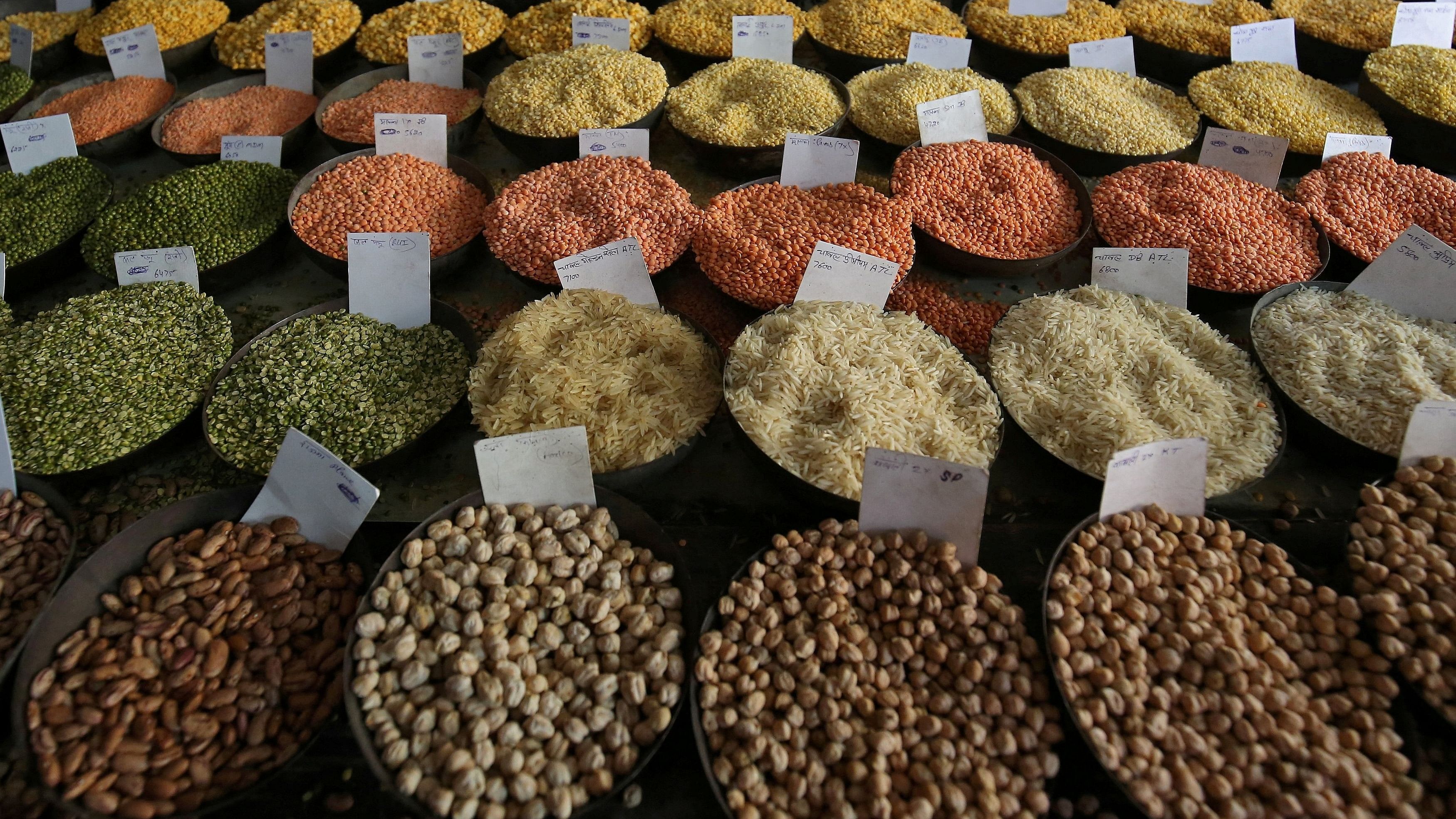
Price tags are seen on the samples of rice and lentils that are kept on display for sale at a wholesale market in the old quarters of Delhi.
Credit: Reuters File Photo
New Delhi: India’s annual wholesale price inflation fell to a three-month low of 0.27% in January helped by easing in food price rise and continued decline in the prices of manufactured products, government data showed on Wednesday.
The Wholesale Price Index (WPI) based inflation stood at 0.73% in December and 0.39% in November. Wholesale prices have witnessed mild inflation for the past three months after registering deflation in the first seven months of the current financial year.
Wholesale food inflation eased to 3.79% in January from a high of 5.39% recorded in the previous month, as per data released by the Ministry of Commerce and Industry.
Price of vegetables rose by 19.71% year-on-year during the month under review. Pulses became costlier by 16.06%; price of onion surged by 29.18%; paddy became dearer by 9.56%, milk by 5.38% and cereals by 4.07% in January on a year-on-year basis.
However, several food commodities like potato, wheat, eggs, meat and fish became cheaper. Oil seeds became cheaper by 9.38% on a year-on-year basis. Price of non-food articles contracted by 6.56% during the month under review.
On a month-on-month basis food inflation eased by 1.06% in January, while overall WPI inflation eased by 0.33%.
Core WPI remained in a deflationary zone for the 11th consecutive month as decline in input costs, especially commodities prices, helped bring down prices of manufactured items. In January core WPI deflation stood at 1%. It recorded a deflation of 0.71% in December.
Analysts said WPI inflation is expected to remain benign in February as well. According to Sunil Kumar Sinha, principal economist at India Ratings and Research, the WPI inflation is expected to remain at 0.5% in February.
“However, in view of retail inflation still being higher than RBI’s comfort level, India Ratings and Research expects RBI to maintain a pause on the policy rate in the near-term,” Sinha said.
The Consumer Price Index (CPI) based retail inflation eased to 5.1% in January from a four-month high of 5.69% recorded in the previous month, as per data released on the National Statistical Office (NSO) earlier this week. Despite the decline, the headline retail inflation remains above the Reserve Bank of India’s medium-term target of 4% for 52 months in a row.
Meanwhile, chief economic advisor V Anantha Nageswaran said inflationary pressure would continue globally due to supply-side constraints.
Speaking at an event at Delhi School of Economics, Nageswaran said, “We are not done yet in our fight against inflation. We are going to be a supply constrained world.” However, he claimed that India has managed inflation well through supply side reforms.
“If our inflation performance in 2022 and 2023 is any indicator, perhaps we have learnt to manage inflation...Supply side reforms will begin to have a positive impact,” he added.
Manufactured products, which have 64.23% weight in the WPI, witnessed a deflation of 1.13% in January on an annual basis.
Under the manufactured products category, some of the groups that witnessed a decrease in prices on a month-on-month basis in January are food products, basic metals, chemicals and non-metallic mineral products.
Out of the 22 sub-groups in the manufactured products category, 12 witnessed a decline in price while prices of 9 groups increased. Items that witnessed an increase in prices on a month-on-month basis in January are machinery equipment, textiles, beverages, motor vehicles, trailers, rubber and plastics products.